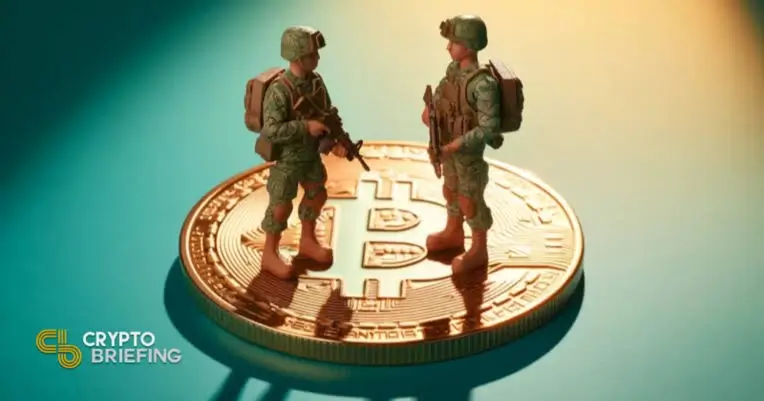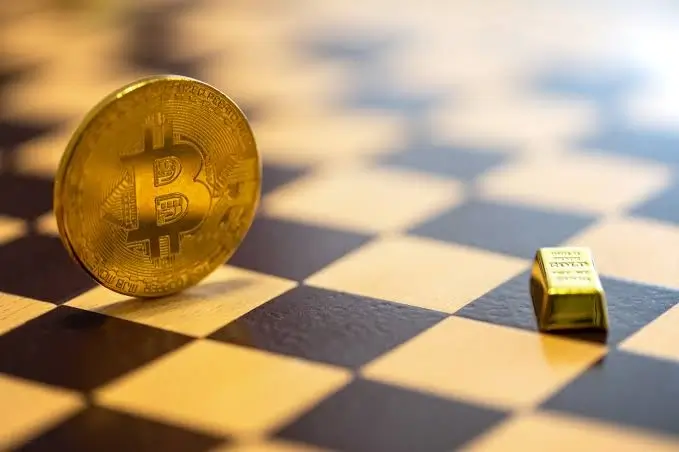The cryptocurrency market is reeling as geopolitical tensions between Israel and Iran escalate into open conflict. Bitcoin, the flagship digital currency, took a significant hit, plunging nearly 5% within hours of Israel’s reported airstrikes on Iranian infrastructure. The broader crypto market followed suit, with Ethereum and other altcoins also tumbling in response.

Declines Amid Escalating Israel-Iran Tensions ( Image Source: Crypto Briefing )
Crypto’s Immediate Reaction to Geopolitical Shockwaves
Global markets responded quickly and cautiously to the unfolding events in the Middle East—but none reacted faster than crypto. The sudden drop in Bitcoin’s value pushed it below key support levels, igniting concern among investors and triggering sell-offs across the digital asset landscape.
Ethereum and altcoins mirrored Bitcoin’s sharp fall, reflecting the heightened anxiety rippling across financial markets. This latest episode underscores the vulnerability of crypto assets to geopolitical instability.
Bitcoin and Global Conflict: A Tense Correlation
Once celebrated as a potential hedge against traditional market risks, Bitcoin’s behaviour during this crisis paints a different picture. Rather than rising amid uncertainty, Bitcoin is now acting more like a high-risk asset, increasingly sensitive to global tensions.
Although the Israel-Iran standoff is not new, the current phase—marked by direct military action—has intensified investor concern. With Israeli forces reportedly striking Iranian targets, global markets are bracing for broader instability, and the crypto sector is bearing the brunt.
Investors Respond: Fear, Flight, and Caution
Both retail and institutional investors are reacting. Many investors are moving their money into traditional safe-haven assets like gold and government securities. Others are rebalancing portfolios in anticipation of knock-on effects across energy markets, emerging economies, and now—blockchain ecosystems.
For crypto traders, the sharp dip is a wake-up call. Bitcoin is proving susceptible to geopolitical shocks, not immune to them. Rather than functioning as a shield, it’s amplifying volatility, responding more like equities than the digital version of gold many believed it could be.
Bitcoin’s Safe-Haven Narrative Put to the Test
The idea of Bitcoin as “digital gold” is being seriously questioned. In theory, assets like Bitcoin should perform well during global uncertainty. In practice, the current conflict has triggered a retreat from risk—including crypto.
This decline follows a familiar pattern. In previous global crises, risk assets—especially speculative ones—have seen pullbacks. Crypto, still perceived by many as speculative, is often the first to fall when uncertainty spikes.
Yet, the market’s reaction goes deeper than just a sell-off.

Bitcoin’s Reputation as a Safe-Haven Faces Scrutiny ( Image Source: Sygnum Bank )
Crypto at the Frontline: Changes Across the Middle East
On the front lines of this crisis, regional crypto markets are showing unusual activity. Middle Eastern exchanges are reporting surges in stablecoin conversions, particularly into USDT and USDC. Traders are also withdrawing funds from exchanges, wary of potential disruptions, government intervention, or increased surveillance.
At the same time, speculation is mounting about the potential use of cryptocurrencies by state or non-state actors to bypass sanctions or fund operations. While most of these claims remain unverified, they contribute to the mounting regulatory scrutiny already emerging across the US, EU, and Asia.
What Traders and Analysts Are Watching Now
All eyes are on a handful of key variables that could shape the next market moves:
- Geopolitical developments: Is this conflict an isolated incident or the start of a wider escalation?
- US Federal Reserve signals: How will macroeconomic policy react if instability continues?
- Oil prices: Already edging higher, they could drive inflation and complicate central bank responses.
- Flight to safety: With gold and bonds gaining traction, Bitcoin’s fall suggests it’s not yet seen as a reliable store of value.
The crypto market’s response is no longer about a single event. It signals a deeper reassessment of the role digital assets play in an increasingly unstable global financial landscape.
Market Sentiment: Risk Aversion Reigns
The prevailing market mood is cautious. Fear indexes are rising, and Bitcoin’s volatility metrics have spiked. While some traders are using the dip as an entry point, others are stepping back, waiting for clarity before making their next move.
For short-term players, these kinds of fluctuations can offer quick gains. For long-term holders, however, the focus is on resilience and narrative. Can Bitcoin regain its status as a hedge against instability—or has that narrative already unravelled?
Also Read: UK Financial Sector Embraces the Crypto Surge
The Broader Picture: Crypto’s Role in a Shifting World
This moment is about more than market charts or trading psychology. It’s about how financial systems evolve in a world marked by conflict, uncertainty, and technological change.
From New York to Tel Aviv, Cairo to Canberra, analysts, policymakers, and investors are debating crypto’s place in the global order. To some, Bitcoin still represents financial independence and the power of decentralised systems. For others, its current performance makes it look more like a volatile tech stock—highly responsive to geopolitical tremors and speculative in nature.
Final Thoughts: A Crucial Test for Bitcoin
Whether you’re deeply invested in crypto or merely observing, this recent plunge is more than a blip. It’s a moment of reckoning—testing old assumptions and revealing new realities.
As the Israel-Iran conflict unfolds, the crypto market is no longer insulated. It moves in tandem with real-world events, for better or worse.
Ultimately, the market is asking: Is Bitcoin still a revolutionary financial asset—or just another reflection of global volatility?
Whatever the answer, one thing is clear: digital assets now sit firmly within the world’s economic and geopolitical pulse, not apart from it.

